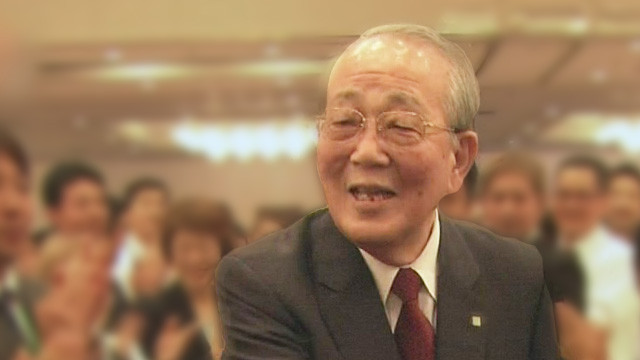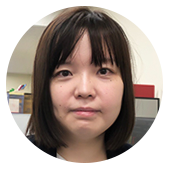Inamori founded Kyoto Ceramic in 1959, and over the years he built the small ceramics maker into electronics multinational Kyocera, with over 7 billion dollars in annual sales.
His success came as he pioneered a unique management method known as "Amoeba Management." It divides a company into small, self-supporting units called amoebas, and appoints a leader to each. All members of each amoeba work with the leader toward common goals while closely monitoring revenues and expenses. The setup is designed to encourage employees to play an active part in managing the company, boosting both motivation and profitability.
Guiding principle: What is right as a human?
At the heart of Inamori's approach was a simple yet effective idea – whenever he was faced with choices about business, he would ask himself, "What is the right way as a human being?"
He elaborated on this in an interview with NHK from 2014.
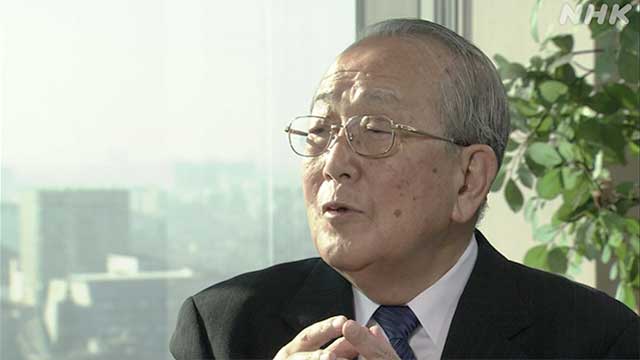
"I sometimes come across successful businesspeople who brag that 'I'm the president' or 'I'm a managing director,' but that's no good," he said. "The higher one climbs the corporate ladder, the heavier the responsibility. The person must be a stoic, self-disciplined manager, who puts in great effort while constantly pursuing what is right."
Inamori's approach has inspired business leaders both at home and around the world. In 1983, young company owners in Kyoto formed a study group called Seiwajyuku, with the goal of learning Inamori's philosophy so they could use it not only in management but also in life. The appeal of the group's mission grew overtime, with some 15,000 people taking part from inside and outside Japan.
One of the members was Oku Hiroyuki, who joined in 2011. He is now a chairman of Nippon Taiiku Shisetsu, a company that designs and builds sports facilities. Under his leadership, the firm has overseen a range of big projects, including the renovation of the track in the old National Stadium and the construction of J-Village, the national training center for soccer.
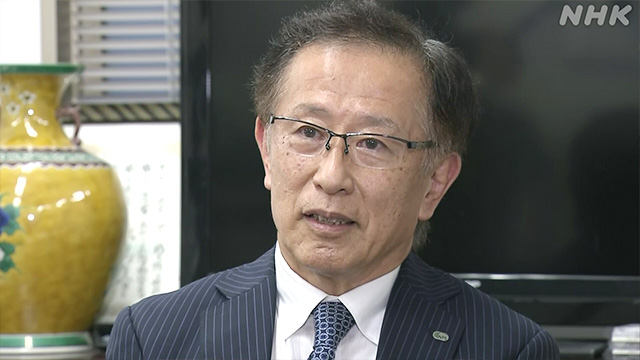
But Oku says after he first became president, he often felt isolated, burdened by concerns about the firm's weak business performance or in-house issues. During this time, he happened to come across Inamori's words -- that the yardstick for judgment should be what is right as a human being. Oku realized that Inamori's success came by embracing altruism.
"Up until that point, I had dedicated myself to working for first-class projects that would go down in history," he says. "But I began to understand that it's important to work for the happiness of your employees. The idea really resonated with me. Of course, companies have to aim to make and improve their profits. But I've learned that focusing on what's good for people's hearts and minds will ultimately bring business results."
"The world has become unstable," he says. "I think market fundamentalism has gone too far. In Seiwajyuku, we would always ask ourselves essential questions, about what human happiness is, and why we are pursuing our businesses."
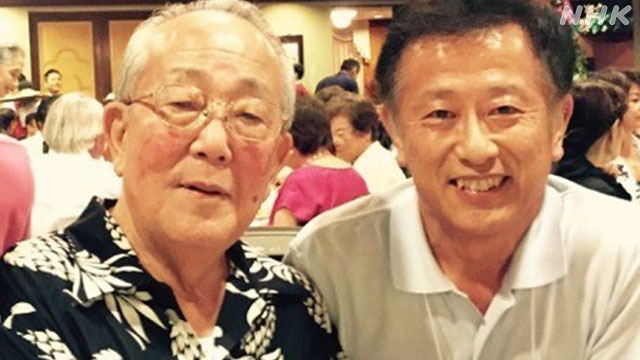
"Inamori's teachings were not just meant to grow companies," Oku says. "He believed in making people happy through business, and that's what is needed in this age of uncertainty."
Inamori's message spreads across the globe
Inamori's words have also inspired business leaders overseas. Seiwajyuku opened branches in the United States, Brazil and elsewhere.
In China, prominent entrepreneurs such as the founder of e-commerce giant Alibaba Group, Jack Ma, are known to have admired the Japanese business legend. At one point, Inamori's obituary was the most searched-for item on Chinese social media. Some posts wished "a peaceful departure for the great businessman," and others wrote of their respect for him.
Seiwajyuku held its final world convention in 2019, due to Inamori's advanced age. Inamori sent a message to some 4,800 members who had gathered from around the globe for the event.
"What lay at the basis of my push for my philosophy was the wish that above all else, everyone would be happy," he said. "I strongly believed that we could live a happy life to its fullest if we lived with this way of thinking. That's why I wanted to share it with as many people as possible.
"Business operators must have a strong desire for their employees to live a wonderful life, with unlimited love as the basis of everything. If leaders always practice self-discipline and show continued efforts to elevate their own character, then employees will naturally try to practice this philosophy for themselves.
"Nothing will be more moving than the tireless efforts a president makes for the sake of their employees. That is why business leaders must strive harder than anyone else. Then the workers will never fail to follow."
More than simply pursuing profits, Inamori sought to improve lives by guiding the motivations of companies, the economy and ultimately society. Successful businesspeople will come and go, but Inamori's words and philosophy will echo for generations to come, inspiring people to redefine what true success means.
